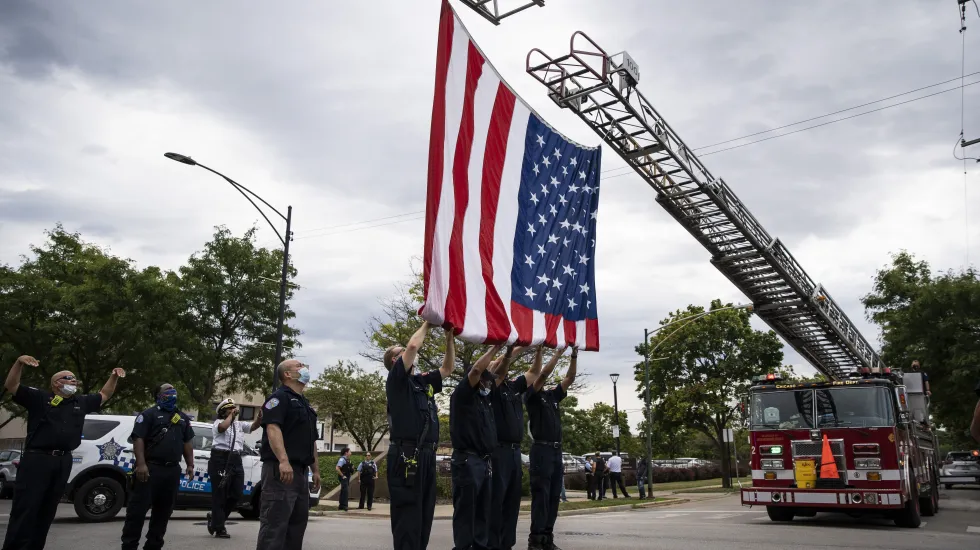
Many ordinances proposed in City Council that involve Chicago police officers and other first responders spark controversy and debate.
That’s not the case with the proposition Ald. Matt O’Shea (19th) introduced Wednesday.
Mayor Lori Lightfoot and O’Shea’s 49 peers have shown support for his plan that would allow surviving spouses of officers, firefighters and paramedics who die by suicide the same financial benefits granted to families of officers killed in the line of duty, the Chicago Sun-Times’ Fran Spielman reported.
Who can argue with that?
Editorials
The emotional toll of these jobs is undeniable, and can wreak havoc on a first responder’s mental health.
Of the 632 law enforcement deaths in the country within the last few years, 25% were suicides. Within the last two years, suicide was the second-leading cause of death of police officers after COVID-19.
Helping families that are left picking up the pieces is certainly not too much to ask, and the cost to taxpayers isn’t expensive.
Under O’Shea’s proposed ordinance, surviving spouses would get a year’s salary and access to a fund that could provide anywhere from $20,000 to $40,000 for family health care, education and other expenses.
The ordinance would apply retroactively to Jan. 1, 2018, accommodating both Anastasia “Stacy” Escamilla and Julie Troglia, who lost their police officer husbands to suicide in 2019 and 2021, respectively.
The women wanted to “change the system,” said former federal prosecutor Patrick Collins, who coaxed O’Shea to make the proposed ordinance retroactive.
Opinion This Week
A weekly overview of opinions, analysis and commentary on issues affecting Chicago, Illinois and our nation by outside contributors, Sun-Times readers and the CST Editorial Board.
Other women in their shoes are doing the same elsewhere.
Take the case of Erin Smith, who pushed for her husband’s suicide to be recognized as a line-of-duty death after the Metropolitan Police officer took his own life following the Jan. 6, 2021 Capitol riots.
Last month, the D.C. Police and Firefighters’ Retirement and Relief Board ruled that Jeffrey Smith, who was attacked during the insurrection, did indeed die in the line-of-duty and granted Erin Smith a full pension.
Here in Chicago, where 13 first responders died by suicide within the last five years, city officials must keep exploring what can be done to keep these sobering numbers down.
There’s enough money in the city’s 2022 budget for Chicago police to hire 11 more mental health counselors, adding to the current 10 on staff. Filling these positions should be a top priority.
Lending a hand to grieving spouses of officers, firefighters and paramedics who died by suicide is a no-brainer. Investing in programs that will keep these tragedies from occurring is paramount too.
Send letters to letters@suntimes.com







